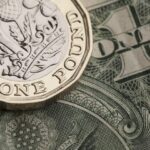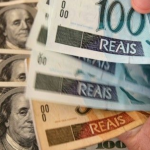British pound regained positions against the US dollar on Wednesday, as speculation appeared that GBP/USD cross sell-off during the last few days was excessive, while markets awaited the minutes of the Federal Reserve Banks meeting on policy in June, scheduled for release later today.
GBP/USD reached a session high at 1.4924 at 8:14 GMT, after which consolidation followed at 1.4913, up by 0.33% for the day. Support was likely to be found at July 9th low and also a three-year low, 1.4812, while resistance was to be met at July 9th high, 1.4980.
British pound plunged on Tuesday, after it was reported that UK manufacturing production unexpectedly decreased by 0.8% in May on a monthly basis and by 2.9% on annual basis, raising concerns over economic growth. There were suggestions that this could increase the likelihood of additional easing measures by Bank of England. The IMF revised up its growth forecast for the United Kingdom, despite lower manufacturing activity and slightly widened trade balance deficit in the country. IMF projected a 0.9% increase in UK GDP during 2013, up from a previous forecast in April of a 0.6% rise.
In addition, UK government bonds recorded slight changes before the Debt Management Office sells 2.25 billion GBP of gilts maturing in 2044 on Thursday. UK government bonds provided investors with a loss of 3.5% this year through Tuesday, according to Bloomberg World Bond Indexes.
Meanwhile, the dollar index, which tracks the performance of the US dollar against a basket of six other major currencies, dipped to 84.40 at 8:13 GMT ahead of FED minutes and Ben Bernankes statement, scheduled later today. In June he said, that if US economy continued picking up the pace, the central bank will begin tapering its monthly bond purchases by the end of this year.
British pound lowered against the euro, as EUR/GBP cross added 0.20% to reach 0.8616 at 9:09 GMT. Economic outlook, regarding growth in 2013 of Germany, Italy, France and the euro region as a whole was revised down by the IMF. Earlier today it became clear that industrial production in Italy rose at a slower rate than initially expected in May, compared to April, by 0.1%, while in France this indicator registered a 0.4% drop during the same period.
Ultimately, sterling has rallied 2.1% in the past three months, according to Bloomberg Correlation-Weighted Indexes, that track 10 developed-nation currencies. US dollar advanced 5.4%, while the euro has gained 3.1%, Bloomberg imparted.





